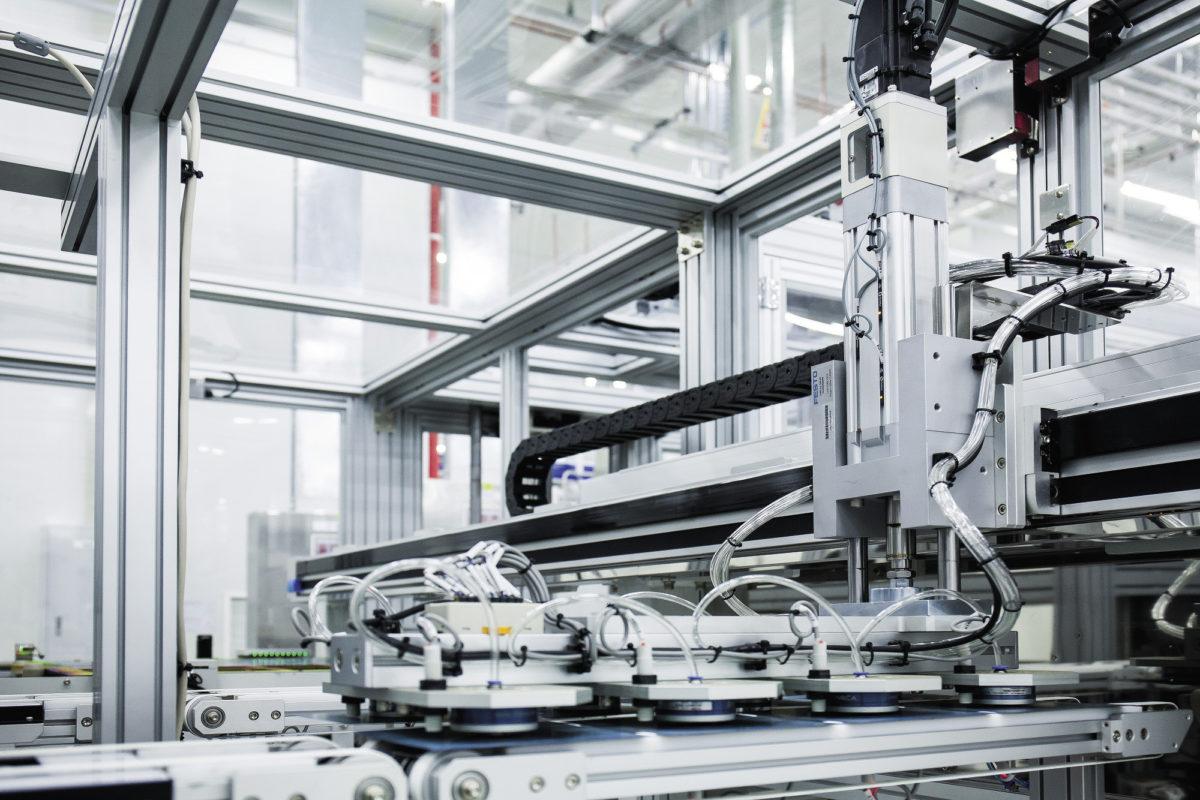The U.S. unit of Korean solar manufacturer Hanwha Q Cells has said it will immediately appeal any summary determination against it in its patent infringement claim against Chinese rival Jinko Solar.
Jinko denies an accusation made by Hanwha in March that it had infringed a patent held by the latter in relation to its solar cell passivation technique. Hanwha brought the case against Jinko and fellow manufacturers REC and Longi in the U.S. after opening a similar case against Jinko and REC in Germany and subsequently opened a third case against Jinko and Longi in Australia.
In relation to the U.S. lawsuit, Jinko yesterday announced the administrative judge responsible for the case had granted its request for a summary decision, which would either stop the case going to court or would permit it to do so only if it were to be decided in Jinko’s favor.
With the granting of Jinko’s request, the U.S. case has been suspended indefinitely and the Chinese manufacturer said yesterday it expected a summary decision to be made within a fortnight.
‘Immediate appeal’
pv magazine approached Hanwha Q Cells for comment yesterday and today the company issued a press release to all media which stated: “Hanwha Q Cells has been expecting this order from the administrative law judge (ALJ) concerning the U.S. International Trade Commission (ITC) investigation regarding the patent infringement case that the company filed in March of this year. We as a company appreciate the ALJ’s decision previewing these forthcoming initial determinations, as we intend to immediately appeal the anticipated summary determination decisions to the ITC’s commissioners.”
The company repeated its assertion it would ultimately be found to have had its patent infringed in the U.S. case but added, any determination by the ITC would have no bearing on the separate cases in Germany and Australia.
It was a busy day for Hanwha’s PR department as the chemical group parent company published its third-quarter update.
Hanwha’s module manufacturing business saw turnover rise from KRW818 billion ($698 million) in the third quarter of last year to KRW1.64 trillion this time. That turned an operating loss of KRW41 billion in July-to-September 2018 to a KRW66 billion profit in the latest figures, mainly due to higher selling prices and profits in unspecified markets, according to the company.
With Australia, Japan and the U.S. highlighted as promising markets, Hanwha said it expected selling prices to continue rising in the current quarter to drive profits up further.
Low prices buffet poly business
Hanwha’s ‘basic materials’ business – which includes the production of polysilicon – saw revenue fall to KRW1.01 trillion for operating profits of KRW76 billion. Within the business unit, Hanwha said its polysilicon business was still suffering an unspecified operating loss and that situation was expected to continue.
Although a bearish polysilicon market was likely to lead to cancellations of planned poly production capacity expansions among its rivals, said Hanwha, oversupply of the solar panel raw material was expected to continue for the time being.
The Korean conglomerate’s process materials segment, which hosts the PV materials business that manufactures EVA for backsheets, saw turnover fall year-on-year from KRW274 million to KRW248 million while operating losses improved slightly, from KRW2 billion to KRW1 billion. That reduction in losses, which moved KRW2 billion in the right direction compared to the previous quarter, was due to solar project capacity demand and depreciation of the South Korean won.
The solar manufacturer claimed a 10.7 GW annual solar module capacity at the end of September and 9 GW of cell production lines.
This content is protected by copyright and may not be reused. If you want to cooperate with us and would like to reuse some of our content, please contact: editors@pv-magazine.com.




1 comment
By submitting this form you agree to pv magazine using your data for the purposes of publishing your comment.
Your personal data will only be disclosed or otherwise transmitted to third parties for the purposes of spam filtering or if this is necessary for technical maintenance of the website. Any other transfer to third parties will not take place unless this is justified on the basis of applicable data protection regulations or if pv magazine is legally obliged to do so.
You may revoke this consent at any time with effect for the future, in which case your personal data will be deleted immediately. Otherwise, your data will be deleted if pv magazine has processed your request or the purpose of data storage is fulfilled.
Further information on data privacy can be found in our Data Protection Policy.